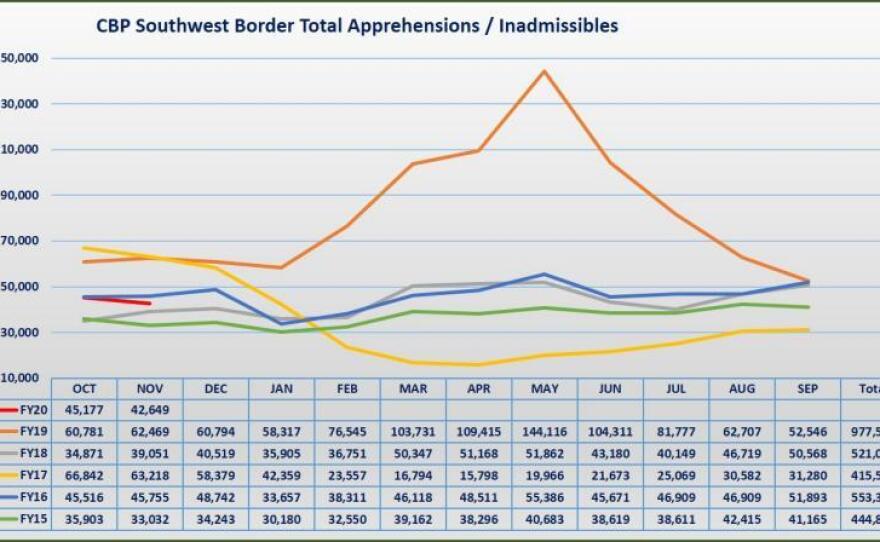The number of people apprehended crossing the southern border continued its downward trend, according to numbers released Monday by U.S. Customs and Border Protection (CBP).
The number of people caught crossing the southwest border dropped by a third in November 2019, as compared to November 2018, according to CBP’s data.
Apprehensions along the southwest border peaked in May, CBP's acting Commissioner Mark A. Morgan said.
“This decrease is more than 70% at the height of the crisis in May. Remember that was 144,000,” he said during a press conference on Monday. “Six months later, we have reduced the amount by more than 100,000.”
RELATED: America's Wall: Decades-Long Struggle To Secure US-Mexico Border

CBP credits the drop to policies aimed specifically at Central American migrants, like the "Remain-In-Mexico" program, which sends asylum-seekers back to Mexico to wait as their asylum claims are processed.
In the San Diego sector, the number of families apprehended so far in the fiscal year dropped by 40% compared to the same time last year.
While the amount of Central American families apprehended has dropped significantly, the stats showed that the number of Mexican families apprehended has almost doubled as compared to last year. Many of those families are fleeing violence in areas of the country dominated by organized crime.







